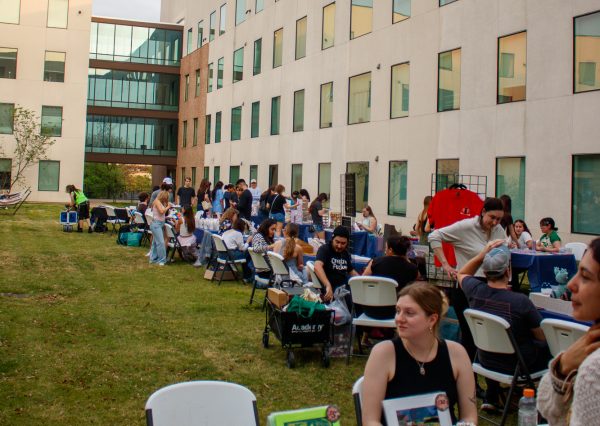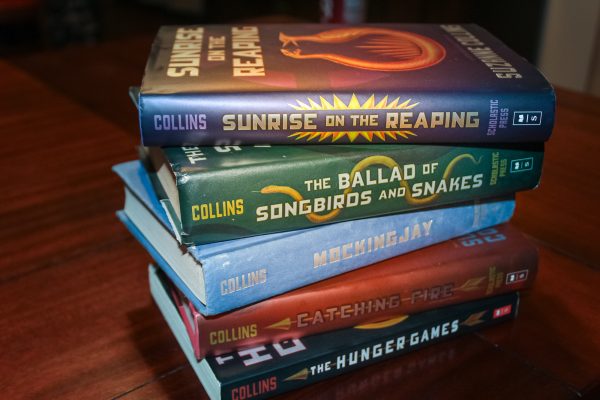Event opens discussion on the plights of black queer men
About 90 students and faculty gathered in the Carter Auditorium of the John Brooks Williams South building for The Mahogany Project, an event that utilized poetry and a panel session to open discussion of the plights of black queer men.
The event was put on by the Multicultural Leadership Board in connection with the Black Students Association of St. Edwards University and PRIDE on Oct. 14.
The Multicultural Leadership Board put on the event to provide an outlet of discussion where students and faculty could learn more about underrepresented LGBT issues.
“As a multicultural organization, talking and learning about LGBT culture and community was missing from our programming. The Mahogany Project performance was our way of opening the door to that discussion and inclusion of LGBT culture, experience, and issues, which is often not represented,” said Marissa Gonzalez, the social justice coordinator of the Multicultural Leadership Board.
The event was centered around the Mahogany Project, a group of three queer black men that spread their message through original poetry and monologue pieces.
The group’s purpose is “to tell the stories of our community— of black queer men here in Central Texas,” according to the group’s leader, Joe Anderson.
The pieces they shared with the audience dealt with issues of how the male black body is viewed in society, the process of self-acceptance and self-love and being comfortable with sexuality.
One of the pieces, titled “Lost Little Black Boy,” was written by Anderson and performed by all three members as a letter to Anderson’s younger self who was dealing with self-hatred and lack of confidence when he began to realize that he was gay. The letter spoke directly to his own younger self and also to the youth of today with statements like, “lost little black boy, you are beautiful…I hate that it took this long for you to realize it.”
Another piece entitled “My Ass,” performed by Franco Washington, deals with one of the main problems that the group addresses: the perception of black male bodies. From comedy to passion, this piece took the audience through a roller coaster of emotions that set the mood for the rest of the discussion.
After the presentations, the group led the audience through a question and answer session. The questions that were asked ranged from light-hearted to extremely serious. “Identify [your] role models growing up, given the cultural invisibility of gay Black men,” asked Professor Innes Mitchell.
This question opened up discussions of the importance of speaking out now to create role models for future generations.
This unique event delved deep into the issues that gay black men face in today’s modern world, and left the audience with a stronger sense of awareness of their struggle.
Follow Rosemond on Twitter @rosemondcrown






